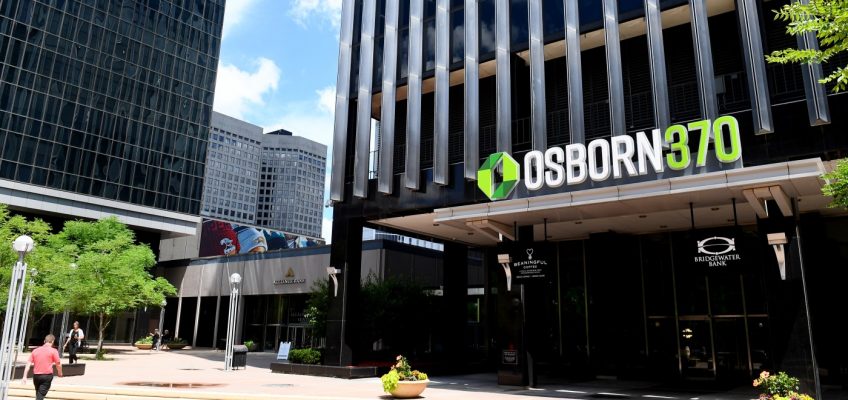The Biden administration on Monday designated 31 technology hubs spread across the country — including St. Paul — to help spur innovation and create jobs in industries such as artificial intelligence, precision medicine and clean energy that have previously clustered on the nation’s coasts.
“We’re going to invest in critical technologies like biotechnology, critical materials, quantum computing, advanced manufacturing — so the U.S. will lead the world again in innovation across the board,” President Joe Biden said on Monday. “I truly believe this country is about to take off.”
The hubs, chosen through a competitive application process, include “Minnesota MedTech 3.0,” or “MMT3.0,” to be led by the Minneapolis-St. Paul Economic Development Partnership, otherwise known as Greater MSP.
Based in downtown St. Paul, Greater MSP plans to boost the state’s profile as a global center for “smart medtech” by bringing together the state’s “medical technology ecosystem” to integrate artificial intelligence, machine learning and data science, according to a written release from the U.S. Economic Development Administration.
A goal of improving health outcomes
The goal, said Greater MSP officials in a separate release, is to create new products for health providers, health insurers and vendors in ways that improve health outcomes for patients while managing rising costs.
Officials said they expect MedTech 3.0 to “deliver thousands of jobs” while courting underrepresented groups in the region and across rural areas of the state as they expand access to lab spaces for start-ups and business accelerators, on top of apprenticeships, training and career pathway programs.
The MedTech 3.0 partnership includes 20 hospitals, medical device manufacturers, state agencies, venture capital firms and research institutions such as the University of Minnesota.
Matt Lewis, vice president of Strategic Initiatives at Greater MSP, indicated Monday it was still unclear how much money would come directly from federal coffers to support Minnesota MedTech 3.0.
“We don’t know exactly,” said Lewis, in an email. “This is a designation that makes us eligible to win tens of millions and as many as hundreds of millions of federal dollars in 2024 and beyond. This is just the beginning. The first wave of funding is only 5% of what Congress passed and the President signed. Much more will likely be allocated over time.”
Regional information sharing, collaboration
Lewis said the federal designation “allows us to combine all our powers here in Minnesota to get industry, government, academia, and other institutions rowing in the same direction, which will lead to many billions more in private investment.”
Among its goals, the Minnesota partnership aims to develop operating protocols for sharing medical data, better allowing for regional information-sharing and collaboration.
Partners include Allina, Boston Scientific, Brown Venture Group, the Center for Economic Inclusion, Fogarty Innovation, gener8tor, the Governor’s Workforce Development Board and the Minnesota Department of Employment and Economic Development, HealthPartners, Mayo Clinic, Medica, Medical Alley Association, Metropolitan Economic Development Association, Medtronic, MN SBIR Inc., Minnesota Technology Association, the MSP Equity Fund and the Shakopee Mdewakanton Sioux Community, the University of Minnesota and Vensana Capital.
On Monday U.S. Sen. Amy Klobuchar, a member of the Senate Commerce Committee and backer of the CHIPS and Science Act, joined Greater MSP President Peter Frosch to announce the designation of a Minnesota tech hub alongside Medtronic chairman and chief executive officer Geoff Martha, as well as University of Minnesota Interim President Jeff Ettinger, and Vocxi Health CEO Ping Yeh.
$500 million in grants to cities
The tech hubs are the result of a process that the Commerce Department launched in May to distribute a total of $500 million in grants to cities.
The $500 million came from a $10 billion authorization in last year’s CHIPS and Science Act to stimulate investments in new technologies such as artificial intelligence, quantum computing and biotech. It’s an attempt to expand tech investment that currently is largely concentrated around a few U.S. cities to the rest of the country.
According to the New York Times, the Biden administration said that in coming months the hubs will compete for a share of the $500 million, with roughly 5 to 10 of the projects receiving up to about $75 million each.
The program, formally the Regional Technology and Innovation Hub Program, ties into the president’s economic argument that people should be able to find good jobs where they live and that opportunity should be spread across the country, rather than be concentrated on the coastal areas of the U.S. The White House has sought to elevate that message and highlight Biden’s related policies as the Democratic president undertakes his 2024 reelection bid.
In January, Greater MSP plans to relocate across downtown St. Paul from its Robert Street offices in the Securian building to its new home in the Osborn370 building on Wabasha Street.
This story contains information from the Associated Press.
Related Articles
What you need to know: 2023 Dakota County education levy referendums
Unisys plans to leave its 32-acre Eagan campus as the city envisions new development
Nina Axelson’s Grid Catalyst helps launch new eco-firms like Carba and GetGreen in Minnesota
Sony’s Access controller for the PlayStation aims to make gaming easier for people with disabilities
Some Rosemount residents hesitant about $700 million Meta data center at UMore site


Leave a Reply